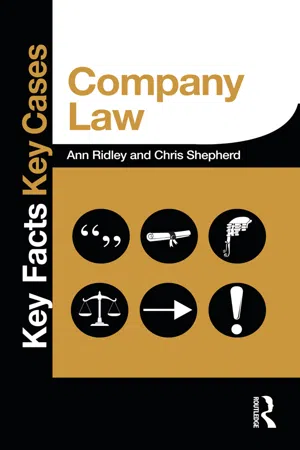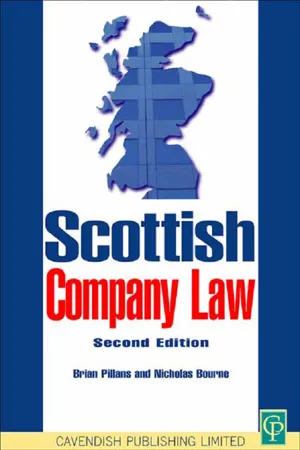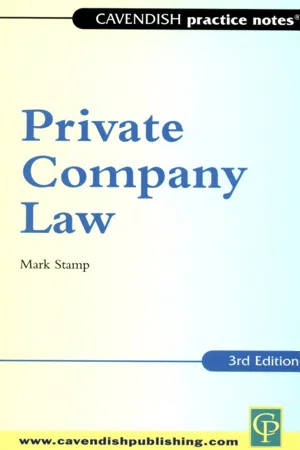Debentures
Debentures are long-term debt instruments issued by companies to raise funds from the public. They are backed by the creditworthiness of the issuer and typically pay a fixed rate of interest. Debenture holders are creditors of the company and have a claim on its assets in the event of liquidation, making them a popular form of corporate borrowing.
5 Key excerpts on "Debentures"
- eBook - ePub
- Michael Brett(Author)
- 2013(Publication Date)
- Estates Gazette(Publisher)
...32 Borrowing for the long term We have looked at short-term borrowing methods for property companies, and the different ways of hedging the interest rate risk that goes with them. At the opposite end of the borrowing spectrum, we now switch to the long-term sources of finance. Take as a starting point the mortgage debenture: the longest-term and most traditional way of raising debt finance via a security issue. It is worth examining in some detail because it conveniently illustrates a number of principles — particularly those relating to security — that crop up in different forms of property company borrowing. A debenture is in essence a tradeable “IOU” and similar in many ways to the gilt-edged securities (bonds) issued by the government. But the terminology can cause confusion. In America, a debenture normally means an unsecured borrowing. In Britain, it is almost certainly used to mean a borrowing secured on the assets — or some of the assets — of the company. In this way it differs from the otherwise similar unsecured loan stock or the bonds issued in the euromarket (which are usually unsecured). A mortgage debenture is ideally suited to the needs of many larger property investment companies or to other types of company with a large property base. Brewers are a typical example, because of the large number of pubs they own which provide attractive security for the loan. Typically, a debenture can run for 30 years or more and will pay a fixed rate of interest throughout its life. Companies which own assets they intend to hold as investments for this length of time thus have the opportunity to match the life of their liabilities to that of their assets. From the investor’s viewpoint, a debenture is a long-term asset which can be bought to match long-term liabilities. Thus it appeals particularly to insurance companies...
- eBook - ePub
- Nicholas Bourne(Author)
- 2016(Publication Date)
- Routledge(Publisher)
...A debenture is generally under the company seal, but once again need not be. There may be a single debenture, typically a secured loan from a bank. By contrast there may be an issue of debenture stock where a loan is raised, usually by means of an offer to the public via the Stock Exchange. Where there is debenture stock, there will be a debenture trust deed. The trust deed will set out the terms of the loan. There may also be a debenture trust deed where there is a series of Debentures – that is to say, several separate loans made to people that rank for payment pari passu (equally one with the other). By virtue of s 738 CA 2006, a debenture covers any form of borrowing by a company whether secured or unsecured. The definition reads as follows: ‘Debenture’ includes debenture stock, bonds and any other securities of a company, whether constituting a charge on the assets of the company or not. In practice, the term debenture is used to describe a secured borrowing. A mortgage that is created by a company is also a debenture: see Knightsbridge Estates Trust Ltd v Byrne (1940). The claimants owned freehold property in Knightsbridge. The property was mortgaged to a friendly society and the mortgage was to be repaid over a period of 40 years. The company wanted to redeem the mortgage early. The House of Lords held that the company had no right to redeem the mortgage early as the equitable doctrine that provided for early redemption did not apply to mortgages granted by companies. 20.3 Debentures compared with shares Debentures and shares have certain similarities. They are both collectively termed securities. Dealings in Debentures on the Stock Exchange are carried out in much the same way as dealings in shares. Prospectus rules are applicable to both shares and Debentures in much the same way...
- eBook - ePub
- Chris Shepherd, Ann Ridley(Authors)
- 2015(Publication Date)
- Routledge(Publisher)
...7 Company borrowing ◗ 7.1 Introduction 1 Companies raise finance by the issue of shares. Public limited companies can raise finance by offering shares to the public but private companies are prohibited from doing so. 2 All companies can raise additional finance by borrowing and frequently do so. A company has an implied power to borrow money, but note that a company’s power to borrow money may be limited by the articles of association. 3 Company borrowing can take many forms, including bank overdrafts, promissory notes, mortgages on property and by issuing Debentures. ◗ 7.2 Debentures 1 Debentures are defined in s 738 CA 2006: ‘In the Companies Acts “debenture” includes debenture stock, bonds and any other securities of a company, whether or not constituting a charge on the assets of the company.’ 2 This is an incomplete definition and the term ‘debenture’ has been given a wide meaning by the courts. Essentially, it has been held to mean any document issued by a company acknowledging a debt. 3 In Levy v Abercorris Slate and Slab Co (1887) Chitty J stated: ‘In my opinion a debenture means a document which either creates a debt or acknowledges it, and any document which fulfils either of these conditions is a “debenture”.’ 4 A broad range of documents have been held to be a debenture. • In Lemon v Austin Friars Investment Trust Ltd (1926), the company issued ‘income stock certificates’ to acknowledge a debt and these were held to be Debentures. • An irredeemable mortgage can also be a debenture: Knightsbridge Estate Trust Ltd v Byrne (1940). 5 A debenture may be secured or unsecured...
- eBook - ePub
- Brian Pillans, Nicholas Bourne(Authors)
- 2012(Publication Date)
- Routledge-Cavendish(Publisher)
...They are both collectively termed securities. Dealings in Debentures on The Stock Exchange are carried out in much the same way as dealings in shares. Prospectus rules are applicable to both shares and Debentures in much the same way. There are certain distinctions between shares and Debentures, however. The main distinctions are as follows: the essential distinction between the two is that a debentureholder is a creditor of the company whereas a shareholder is a member of the company; the company is free to purchase its own Debentures; Debentures may be issued at a discount whereas shares cannot: see s 100 of the Companies Act 1985; interest on a debenture when due is a debt which can be paid out of capital. There is no automatic right to a dividend and dividends are payable only out of profits. 18.3 Types of Debentures Debentures may be secured or unsecured. Securities may take the form of fixed or floating charges and give the debentureholder rights exercisable over the company's assets. An unsecured debentureholder ranks only as an ordinary creditor if the company winds up. Debentures may be redeemable or irredeemable. A redeemable debenture may provide that it may be redeemed by the company on a certain date. A redeemed debenture may be re-issued by the company. Irredeemable (or perpetual) Debentures specify no date for redemption. Redemption may only be demanded by the holder if the company winds up or if it breaches any conditions attached to the debenture. The company, however, may normally redeem a perpetual debenture at any time. Irredeemable Debentures are permitted by s 193 and recognised in Scotland in s 2 of the Redemption of Standard Securities (Scotland) Act 1971 (see, also, the English case of Knightsbridge Estates Trust Ltd v Byrne (1940)). Convertible Debentures (allowing the holder the option of converting the Debentures into shares) may be issued if authorised by the articles or by the company in general meeting...
- eBook - ePub
- Mark Stamp(Author)
- 2013(Publication Date)
- Routledge-Cavendish(Publisher)
...13 Charges and Debentures 13.1 The power to borrow Almost all companies have an express power to borrow in their articles and, even if they do not, a power to borrow will be implied (General Auction Estate and Monetary Co v Smith [1891] 3 Ch 432). Furthermore, a company that has power to borrow also has implied power to charge its assets but not to give guarantees or secure the obligations of third parties (including its subsidiaries). Articles may contain restrictions on this power to borrow by limiting the amount of borrowing to, for example, a specified multiple of share capital and reserves. Table A does not contain any restriction on directors’ power to borrow. 13.2 Types of Debentures A debenture is a written acknowledgment of a company’s debt. It may be either unsecured or secured over the company’s assets by means of a fixed or floating charge. It is important to ascertain whether a creditor has a fixed or a floating charge, since on a winding-up the priority of a creditor will depend on the nature of security held (see below, 13.4). It should be noted that the court, in determining the type of charge, will look to the substance of the security and not merely to the title accorded by the parties. A fixed charge is a charge over defined assets, such as real property. A fixed charge can cover not only assets in existence but future assets, for example, a charge over book debts which may be paid to a company at some point in the future (Siebe Gorman Ltd v Barclays Bank Ltd [1979] 2 Lloyd’s Rep 142). It is an essential feature of a fixed charge that the property subject to the charge cannot be dealt with until the consent of the chargee is obtained, and therefore it is inappropriate to take a fixed charge over a company’s stock in trade since it would be impractical to obtain the chargee’s consent each time it wished to sell its stock...




